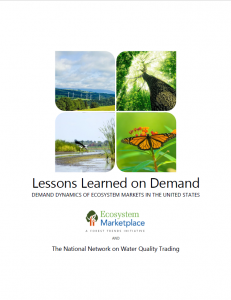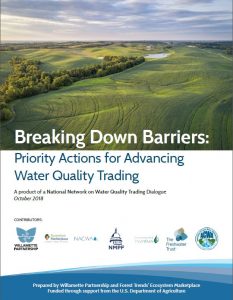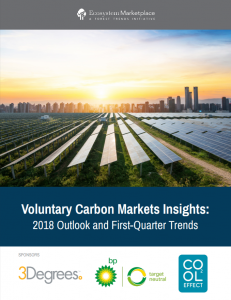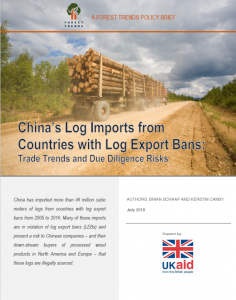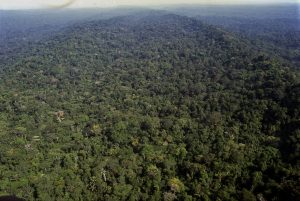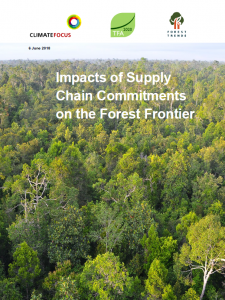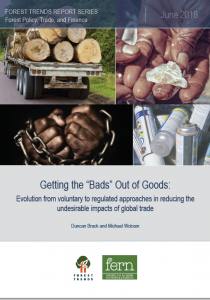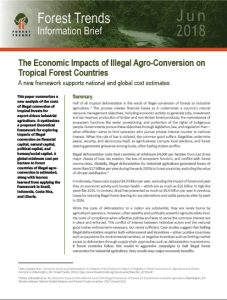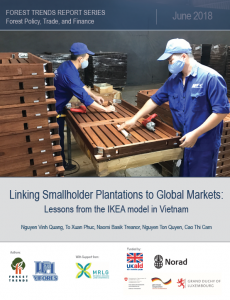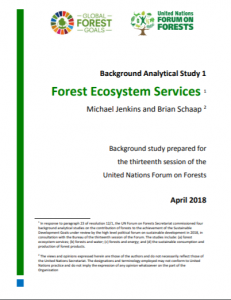Lessons Learned on Demand
Demand Dynamics of Ecosystem Markets in the United States
By Genevieve Bennett, Melissa Gallant, and Kelley HamrickThis study on lessons learned about demand in ecosystem markets in the United States was commissioned to help the National Network on Water Quality Trading (NNWQT) identify transferrable lessons for their strategy on stimulating demand for water quality credits and other market-based incentives for nonpoint source water quality. A rapid review of historical experience in […]
Mapping Potential Demand for Water Quality Trading in the United States
By Genevieve Bennett and Melissa GallantWater quality trading is a promising tool that offers a flexible, more cost-effective approach to reducing pollution in our waterways than more traditional engineered solutions. Yet a lack of sufficient demand for credits has been a consistent barrier to scaling up water quality trading in the United States. The National Network on Water Quality Trading […]
Breaking Down Barriers: Priority Actions for Advancing Water Quality Trading
By Willamette Partnership and Forest Trends' Ecosystem MarketplaceWater quality trading is a cost-effective way to meet clean water goals and deliver multiple benefits for people, fish, and wildlife. Yet, compared to other environmental markets (think: carbon offsets), interest and demand for water quality credit trading has been slow to catch on. A new report from the National Network on Water Quality Trading, […]
Dependent Documents
Breaking Down Barriers: Priority Actions for Advancing Water Quality Trading – Executive Summary
By Willamette Partnership and Forest Trends' Ecosystem MarketplaceEmail Signup
Subscribe to any of Forest Trends’ mailing lists to keep up with the news, publications, and events that interest you.
Having Trouble?
If you experience any technical difficulties on our site, please contact Genevieve Bennett, Communications Manager.
Voluntary Carbon Market Insights: 2018 Outlook and First-Quarter Trends
By Kelley Hamrick and Melissa GallantSince trading of voluntary carbon offsets first took off in the late 2000s, voluntary carbon projects have helped to reduce, sequester, or avoid over 435.7 MtCO2e–equivalent to not consuming over one billion barrels of oil. These projects are supported by companies, individuals, and governments purchasing carbon offsets, whose growing demand resulted in a record-high of […]
China’s Log Imports from Countries with Log Export Bans
Trade Trends and Due Diligence Risks
By Brian Schaap and Kerstin CanbyChina has imported more than 46 million cubic meters of logs from countries with log export bans from 2005 to 2016. Many of these imports are in violation of log export bans (LEBs) and present a risk to Chinese companies – and their down-stream buyers of processed wood products in North America and Europe – that these logs are illegally sourced. […]
Dependent Documents
Impacts of Supply Chain Commitments on the Forest Frontier
The State of the Supply Chain Movement: Progress on Corporate Commitments and Impact at the Forest Frontier
By Thiago Chagas, Charlotte Streck, Hilda Galt, Steve Zwick, Ingrid Schulte, Alan Kroeger, Ashley ThompsonSince the 2010 Consumer Goods Forum Deforestation Resolution, more than 473 companies have made commitments to eliminate deforestation from their supply chains. With 70% of deforestation linked to the production of agricultural commodities, these pledges hold the promise of making a major contribution to the end of tropical deforestation. This raises two questions: 1) What […]
Getting the “Bads” Out of Goods
Evolution from voluntary to regulated approaches in reducing the undesirable impacts of global trade
Over the past seventy years the rapid expansion of international trade and the growth of international supply chains, with various stages of production processes located in different countries, has at the same time facilitated the growth of trade in “undesirable products” associated with “global public bads”: trade in goods which are produced illegally or unsustainably […]
The Economic Impacts of Illegal Agro-Conversion on Tropical Forest Countries
A new framework supports national and global cost estimates
This paper summarizes a new analysis of the costs of illegal conversion of tropical forests for export-driven industrial agriculture. It synthesizes a proposed theoretical framework for exploring impacts of illegal conversion on financial capital, natural capital, political capital, and human/social capital. A global minimum cost per hectare to forest countries of illegal agro-conversion is estimated,[…]
Linking Smallholder Plantations to Global Markets
Lessons from the IKEA model in Vietnam
By Nguyen Vinh Quang, To Xuan Phuc, Nguyen Ton Quyen, Cao Thi CamExport-oriented wood processing companies in Vietnam are increasingly entering into legally-binding contractual relationships with smallholder producers – the country’s main source of domestically-grown plantation timber. One of the best examples of this “linkage model” is the partnership between households in Vietnam’s mountainous areas and companies that specialize in processing FSC-certified wood products for IKEA. This […]
Untapped Potential: Forest Ecosystem Services for Achieving SDG 15
UNFF13 Background Analytical Study
By Michael Jenkins and Brian SchaapThe world’s forest ecosystems provide critical and diverse services and values to human society. As primary habitat for a wide range of species, forests support biodiversity maintenance and conservation. Yet, continuing forest loss worldwide negatively impacts the livelihoods of millions of people and poses major challenges to sustainable development, in part because these forest ecosystem services continue to be […]

